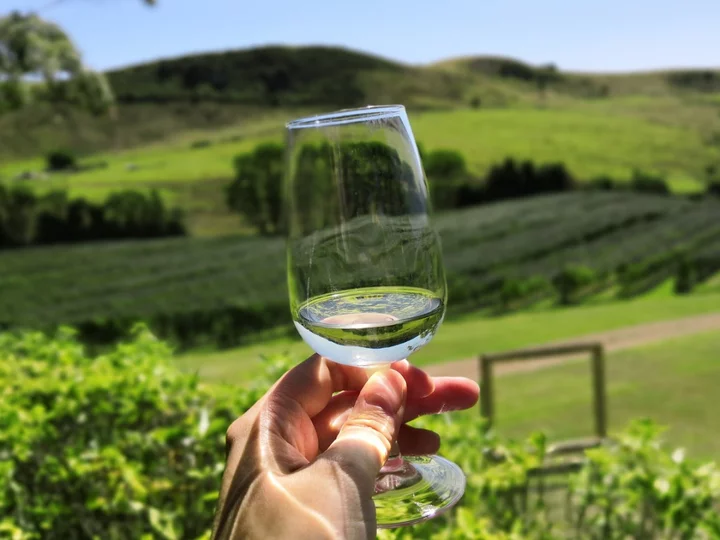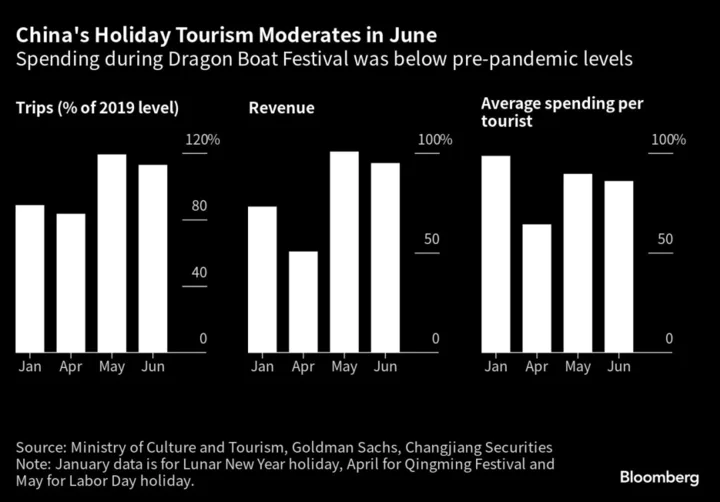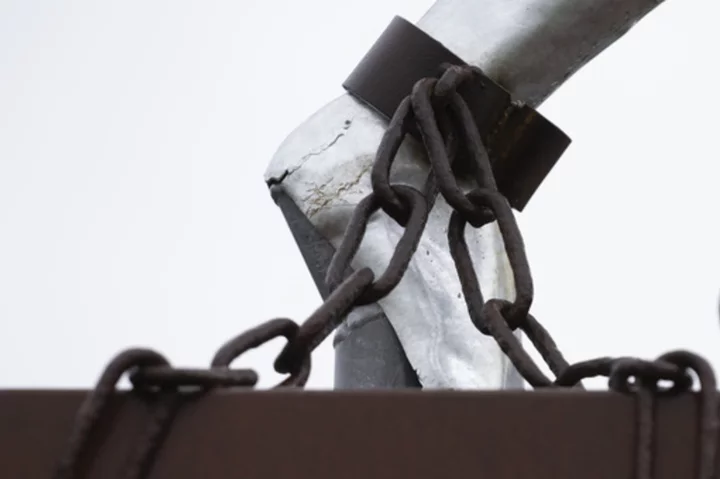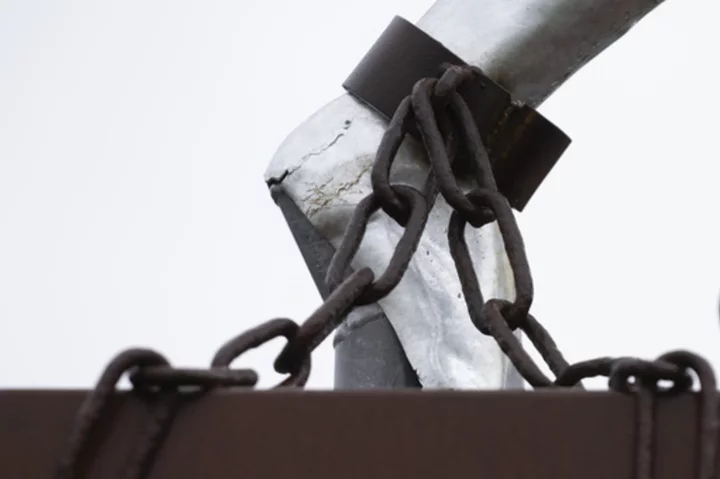
Nokia renews patent license agreement with Apple, covering 5G and other technologies
Network infrastructure and 5G-technology provider Nokia has signed a new long-term patent license agreement with Apple to replace the current deal between the two companies that is set to expire at the end of the year
2023-07-01 19:24

3 killed, 17 wounded in Ukraine from Russian attacks, as Spain highlights European support for Kyiv
Ukrainian officials have reported three people killed and 17 others wounded from Russian shelling in the country’s east and south
2023-07-01 19:19

The curious history of sauvignon blanc – and what to drink if you hate it
Growing up in the early 2000s-2010s meant the rite of passage into alcohol inevitably involved terrible choices, from alcopops (RIP) to grim beers (Coors) and nasty wine. Mostly white, rarely red, while rosé that both looked and tasted like Ribena was a world away from the delicate pale provencal style we’re so au fait with now. Then as now, the cheaper the better. Location, grape variety, acidity levels – it all meant absolutely nothing. Hell, taste didn’t matter either. Slurp it fast enough and you’d barely notice a slight whiff of paintstripper on the nose or a lingering hint of vinegar on the palate. It was just your (well below) average plonk. The number one important factor was price – swiftly followed by ABV, of course. The rough budget for a bottle was the mighty sum of £3-4. A tenner was a good night out. Remember those days? It was around this time that sauvignon blanc began its world domination. It was the IT wine to buy. Rocking up to your friend’s house with a bottle in tow made you look like you knew something about wine, maybe even had great taste (despite still buying the cheapest bottle possible, of course). It was even better if it was from New Zealand – top points if it came from Marlborough, the top of the South Island, where about 70 per cent of the country’s wine is produced. Love wine but don’t know where to start? The Independent Wine Club features curated cases from small growers and expert advice on how to enjoy wine. Sign up now for free. While Gen Z seem to have broken free of British booze culture altogether, when I was at university, rosé was the go-to pre-drink before a night on the tiles. And lots of it. It’s been off the table ever since. The mere smell of it takes me right back to those heady, alcohol-drenched days. Perhaps it’s just a case of unfortunate timing for my age group – victims of the wine’s popularity surging at the height of early-Noughties boozing culture. But why did sauvignon blanc become so popular 15 years ago? ​​Emily Harmen, wine consultant at Firmdale Hotels and Vina Lupa, says it’s “simply because when people get into wine, they usually like wines that are quite fruity”. Sauvignon blanc offers these fruity notes, as well as freshness. It’s famed for its notes of crisp asparagus, green pepper and often a grassy or herbaceous flavour too. High acidity makes it very dry. The New Zealand sauvignon blanc vines were planted in the Seventies, and its arrival on the British scene a few decades later served as a pointed change in taste from the overly oaked Chardonnays and sickly syrupy rieslings (the latter is now cool again; more drinkable and less sweet) that were popular at the time. Sam Tendall, co-founder of online wine shop Smashed Grapes agrees, and says sauvignon blanc’s prominent rise is owed to consumers wanting “lip-smackingly thirst-quenching drinks… that are naturally high in acidity with tropical fruit flavours”, and wines from Marlborough had that sort of fruitiness people were looking for. It wasn’t just in wine that tastes were changing, either. “This taste shift was mirrored in other drinks such as the boom of gin and flavoured tonics, or tropical IPAs in the beer world, which are all high in acidity and fruity,” Tendall adds. It quickly became Britain’s most popular white wine choice, both in supermarkets and restaurant wine menus, whether that’s by the glass or bottle, or even served as the house wine. Lauren Denyer, an educator at the Wine and Spirit Education Trust (WSET), says that along with New Zealand’s “tropical fruit, such as passion fruit and mango, which many drinkers find very appealing”, it’s also its “lightness which make it easily quaffable”. However popular it may be, it can still divide opinion in the upper echelons of the wine world, especially among the more commercial labels that everyone is familiar with (Oyster Bay, we’re looking at you). Sauvignon blanc grapes originate in France, where the premium wines, Sancerre and Pouilly-Fumé (from the highly regarded French regions of the same names) are still made. These are usually seen as a step up from your average savvy B, despite being made with the same grapes, and not just because they’re more expensive, but because they’re more complex. A lot of the Kiwi sauvignon blanc’s popularity is down to marketing. They do it very, very well to us Brits, who largely bought NZ’s green image (although there’s nothing green about shipping wine to the other side of the world). The price point of New Zealand’s offering also made them appealing. “People probably know the New Zealand sauvignon blanc more as it’s a more accessible price point… wines from the Loire region are more expensive because it’s a more challenging climate to grow wine, so you produce less,” explains Harmen. Its popularity knew no boundaries during the Noughties. So much so that wine makers couldn’t grow enough of the grapes. According to the NZ Winegrowers association’s annual 2020 report, between 2003 and 2015, sauvignon blanc vine planting increased five-fold to keep up with the demand. Although now, as climates warm up around the world leading to more extreme and freak weather, experts think it’s only a matter of time until this changes the wines beyond their signature characteristics. This has seen as recently as February when New Zealand felt the force of cyclone Gabrielle, which saw unprecedented amounts of rain and devastating effects including flooding some vineyards and burying others in silt on the North Island, just ahead of harvesting. In 2021, a harsh frost combined with an early budburst meant the crop yields were down by 30 per cent. The knock-on effect is already being felt, along with the rise in inflation and cost of living crisis, as Tendall says, in the wider market: “Sauvignon blanc is going up in price and big branded pinot grigio has stayed at the value end, so with the cost of living we are seeing a small decline in sauvignon popularity.” The pandemic has also contributed to a change in tastes and buying habits. Some people stopped drinking altogether, while others used the time to nurture their passion for it. As shopping in person became harder, subscription boxes and independent online sellers introduced lesser known varieties to the market. Dayner explains: “Prompted by the pandemic, drinking the same wines regularly became less desirable”, and instead, people were “increasingly willing to try a wider range of wines and sales of wine for home consumption increased hugely as drinkers looked to mix things up a little bit”. Harman doesn’t see any indication that the guests of the hotels she consults for (which are mostly high end including London’s Ham Yard Hotel and The Soho Hotel) are changing their mind on sauvignon blanc. However, she deals in artisan, handcrafted and mostly organic wines, rather than the commercial wines we buy in supermarkets for less than £10. Instead, what Harman is seeing more of is some producers experimenting with skin contact styles, and more natural varieties, a style which sauvignon blanc grapes lend themselves well to. “A producer in Australia called Tom Shobbrook makes a wine called giallo (yellow in Italian) which is one of the benchmark examples of the more experimental natural wines,” she explains. Skin contact sauvignon blanc feels a world away from my entry level days into savvy B, which were so atrocious that I steered clear of white wine for many years. It was the reappearance of viognier on menus that enticed me back – in particular an organic viognier from South Australia’s Yalumba vineyard. But if you really can’t hack it, I asked the experts for their advice, and these are the wines to drink if you don’t like Sauvignon blanc: 1. Verdejo All three experts mentioned this wine. “From Spain’s Rueda region, it’s the country’s favourite white wine, loved for its brisk acidity and vibrant fruit. It’s now starting to become more popular in the UK market,” says Denyer. 2. Picpoul For something more mineral, that’s lighter and fresh, Harmen suggests Picpoul, which is quickly growing in popularity again. Denyer adds that “although grown somewhere that can get extremely hot, the wines are super-fresh with apple, lemon and hints of peach on the palate”. 3. Bacchus Denyer says: “It’s a grape variety that is originally a German cross. It has all the appeal of Sauvignon Blanc and a plus point is that the wine does not have to travel far. You can even get sparkling versions, great for summer picnics and gatherings.” 4. Albariño “Also from Spain, the main grape in Vinho Verde and is a cracking patio wine, jam-packed with the lemon sherbert refreshment sauvignon blanc drinkers love,” says Tendall. 5. Austrian Grüner Veltliner “Forgot its old reputation of tasting like antifreeze, it’s full of those classic gooseberry flavours long associated with top Marlborough varieties,” says Tendall. 6. Trebianno “This Italian white has delicate aromatics with white flowers, it’s quite savoury with more peachy fruit flavours,” says Harmen. For more white wine inspiration that’s not sauvignon blanc read our review of the best dry whites here Read More The Independent Wine Club best cases 2023: Wine from small growers Win a mixed wine case, perfect for pairing with food Uncorked: How do I keep my wine cool at a picnic? The Independent Wine Club best cases 2023: Wine from small growers Win a mixed wine case, perfect for pairing with food Uncorked: How do I keep my wine cool at a picnic?
2023-07-01 19:18

Abortion regulations and LGBTQ-related legislation among state laws taking effect Saturday
As several state legislative sessions have concluded or are drawing to a close, some of the high-profile legislation enacted by state lawmakers is just taking effect.
2023-07-01 18:27

Seoul Pride Goes Ahead Despite Rising Anti-LGBTQ Rhetoric
Tens of thousands of people gathered on Saturday afternoon in Seoul for the city’s Pride parade, following months
2023-07-01 18:22

Rescuers dig through rubble after deadly strike hits Ukraine school
Rescue workers rushed to a school in Donetsk, Ukraine, to find survivors and clear debris after Russian forces hit the building on Friday (30 June) The strike hit a primary school in the village of Serhiivka, killing two people including a teacher and injuring six others, according to the Ukrainian general prosecutor's office. Around 12 people were in the educational facility when it was struck, the general prosecutor said. One person has been recovered from the rubble, the State Emergency Service of Ukraine said on Friday afternoon.
2023-07-01 18:16

China names forex regulator Pan Gongsheng as central bank party boss
(Reuters) -China's ruling Communist Party appointed central bank Deputy Governor Pan Gongsheng as the bank's party secretary on Saturday, a
2023-07-01 17:51

Charting the Global Economy: US Inflation Cools, Europe’s Rises
Underlying inflation cooled in the US and quickened in Europe, according to the latest readings, while central bankers
2023-07-01 17:27

Rioters attack Strasbourg Apple store over Paris police shooting
Rioters attacked an Apple store in Strasbourg, France, on Friday (June 30) after a 17-year-old of Algerian and Moroccan descent was shot by a police officer on Tuesday in the Nanterre suburb of Paris. Video from La Presse Libre shows people throwing stones and breaking into the shop. It comes as unrest has flared nationwide for four consecutive nights after the death of the teenager, who has been named as Nahel Merzouk, which was caught on video. The officer responsible - identified as Florian M., 38 - is on remand after being charged with murder.
2023-07-01 17:26

The Dutch king could offer an apology in a speech on the anniversary of slavery's abolition in 1863
Dutch King Willem-Alexander will deliver a speech to commemorate the anniversary of the country abolishing slavery
2023-07-01 17:26

China Names Pan Gongsheng as Party Head of Central Bank
China named Pan Gongsheng as the central bank’s new Communist Party chief, a step usually taken before being
2023-07-01 17:21

The Dutch king will deliver a speech at an event on the anniversary of slavery's end in its colonies
Dutch King Willem-Alexander will deliver a speech to commemorate the anniversary of the country abolishing slavery
2023-07-01 16:58
